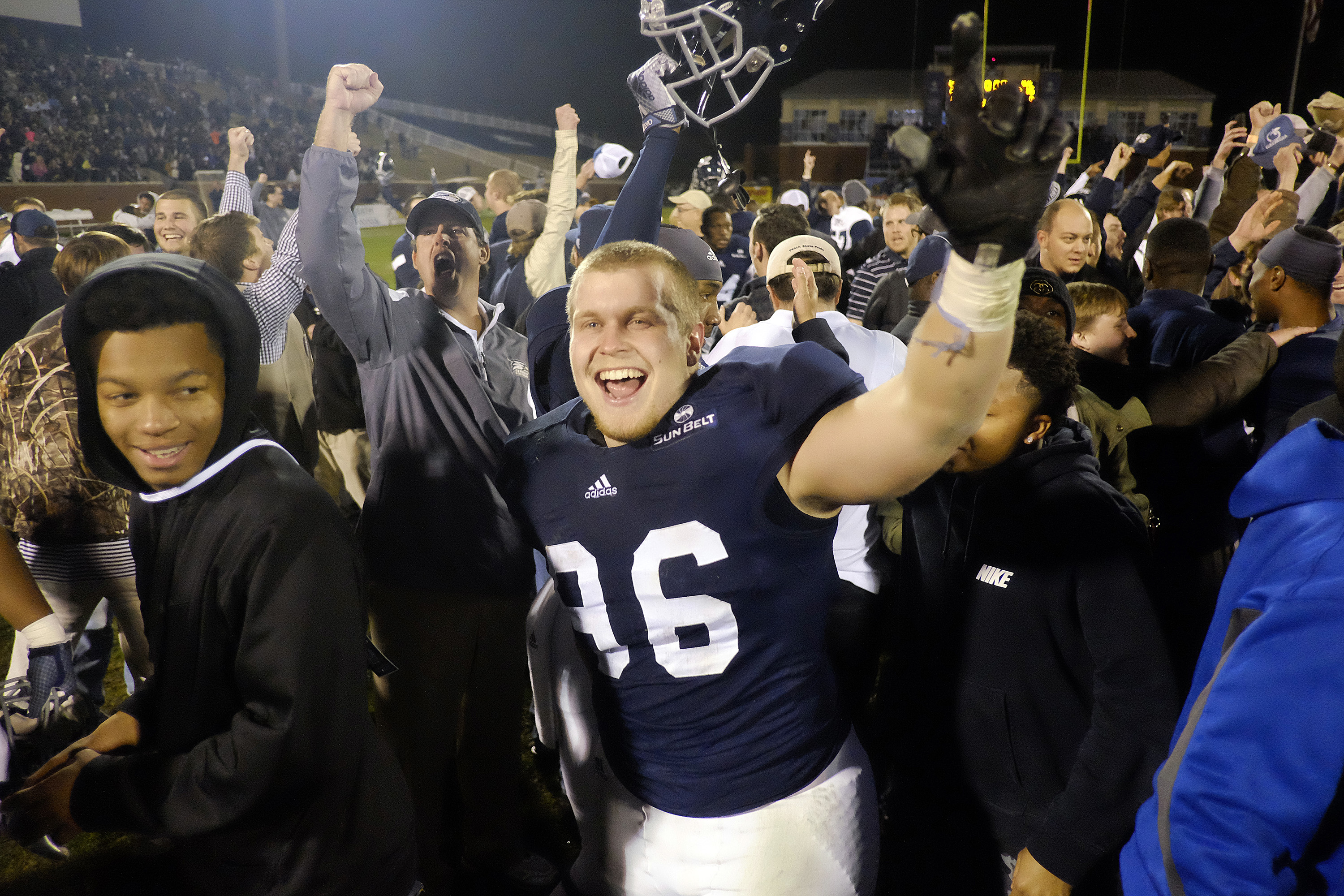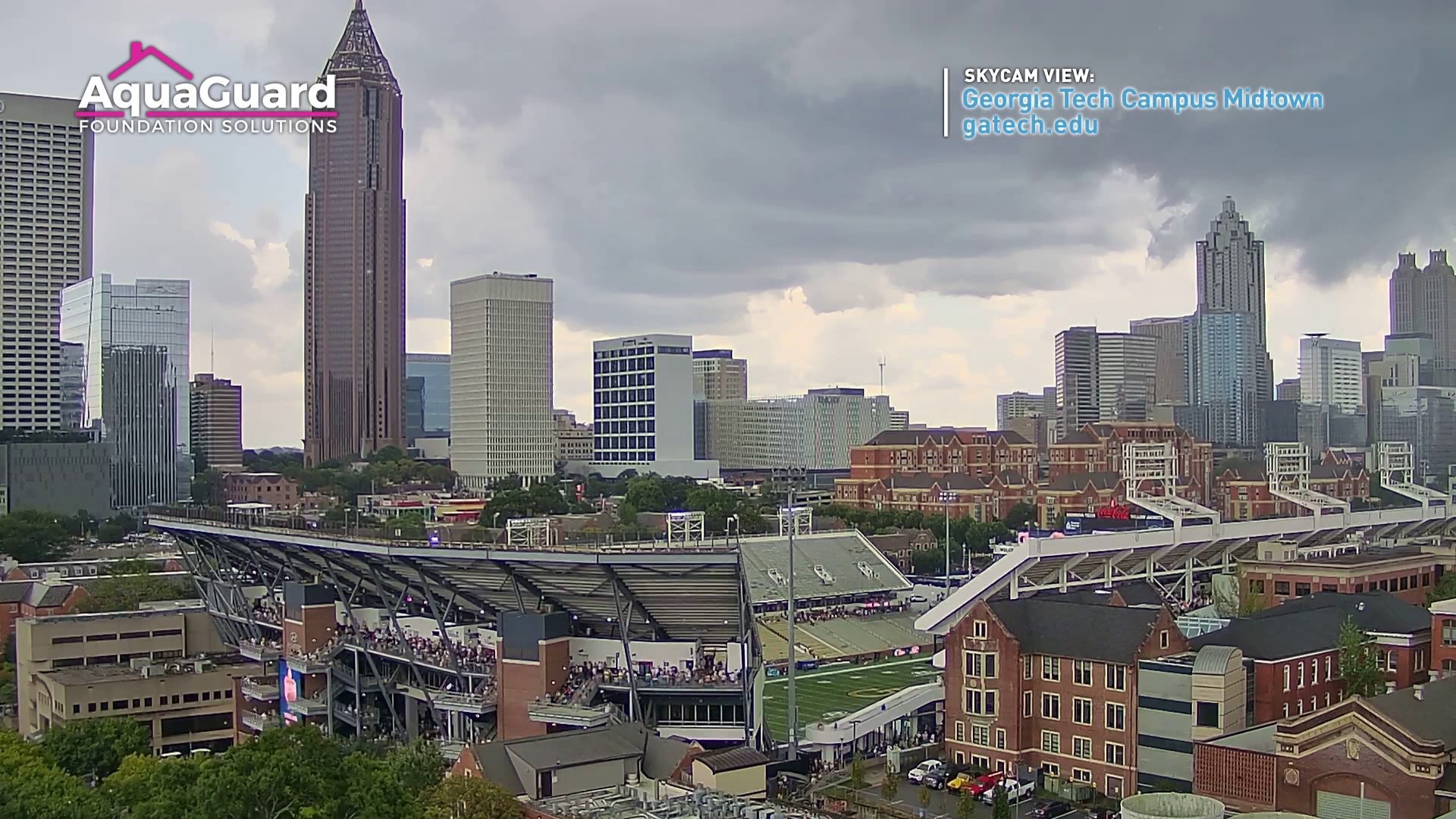Despite going undefeated in the Sun Belt Conference and winning the outright league championship, Georgia Southern's season is already over unless the school can convince the NCAA to waive a rule prohibiting first-year Football Bowl Subdivision teams from playing in bowl games.
And though time is now running short since bowl game matchups will be set by Sunday, Georgia Southern athletics director Tom Kleinlein is hoping one final appeal will be enough for the NCAA to agree with the school's reasoning for why it should be postseason eligible immediately after moving up from the Football Championship Subdivision.
"Our whole basis for the waiver is if you really study the bowl process, there's been waivers written for numerous things throughout time — for teams that had losing records, waivers when there's not enough bowl eligible teams and other things," Kleinlein told USA TODAY Sports. "So when you start to look at that and the uniqueness of what we've done in our transition by becoming conference champions, going undefeated in the conference, we made an appeal basically saying does the uniqueness of our situation warrant at least a discussion of this?"
Without the waiver, Georgia Southern's only other option to become bowl eligible this year was to hope fewer than 76 teams reached six wins. That threshold was crossed last weekend, however, when the number of bowl eligible teams reached 80.
Last month, Sun Belt commissioner Karl Benson told USA TODAY Sports that even if Georgia Southern became bowl eligible through that route, they would be placed at the bottom of the league's pecking order out of deference to the longstanding FBS members. Currently, the Sun Belt has four bowl eligible teams for three contracted spots.
Kleinlein is now arguing, however, that Georgia Southern (9-3) should be treated differently because it won the conference championship outright.
"If we were just a bowl eligible team, I get that argument," he said. "But we're conference champions, and that is what puts us ahead of everybody else. I didn't make the argument to the NCAA when we won six games, I didn't make it when we won seven or eight. I waited until we got at least a share of the conference title before I submitted my deal."
Benson didn't immediately return a call seeking comment.
Though the NCAA has already denied Georgia Southern's initial waiver request, Kleinlein is hoping an appeal will overturn that decision. From a procedure standpoint, however, Kleinlein said it is difficult because the Div. I administrative cabinet is in the process of reorganizing with the new autonomy structure that will be put in place following next month's NCAA convention. He said he has been working with NCAA membership services coordinator Steve Mallonee to see if there's a board that can rule on the appeal.
The NCAA did not immediately return e-mails seeking clarification.
Wright Waters, executive director of the Football Bowl Association, said it was "a membership issue" within the NCAA and that his organization had "no dog in that fight."
Waters did, however, offer some history about why the NCAA decided to make schools ineligible for bowl games during their first year in FBS.
"The FCS members insisted upon it because they didn't want people moving from FCS to FBS too easily, so they felt like this year of transition helped them keep their members in FCS," Waters said. "We can debate whether it does or not. Then the FBS membership kind of said, 'OK, sure we understand that, we'll go along with that but our reason for going along is because (players) can transfer from FBS to FCS and become eligible immediately. They said, 'We don't want a bunch of people to transfer in May from all of our programs and in September we see them again playing for bowl spots.'"
Kleinlein said he thinks the rule has a blind spot for a situation like Georgia Southern's, which few could have anticipated.
"I don't think anybody could have anticipated our success or look at every scenario that would come up in the transition process when these rules were made," he said.


